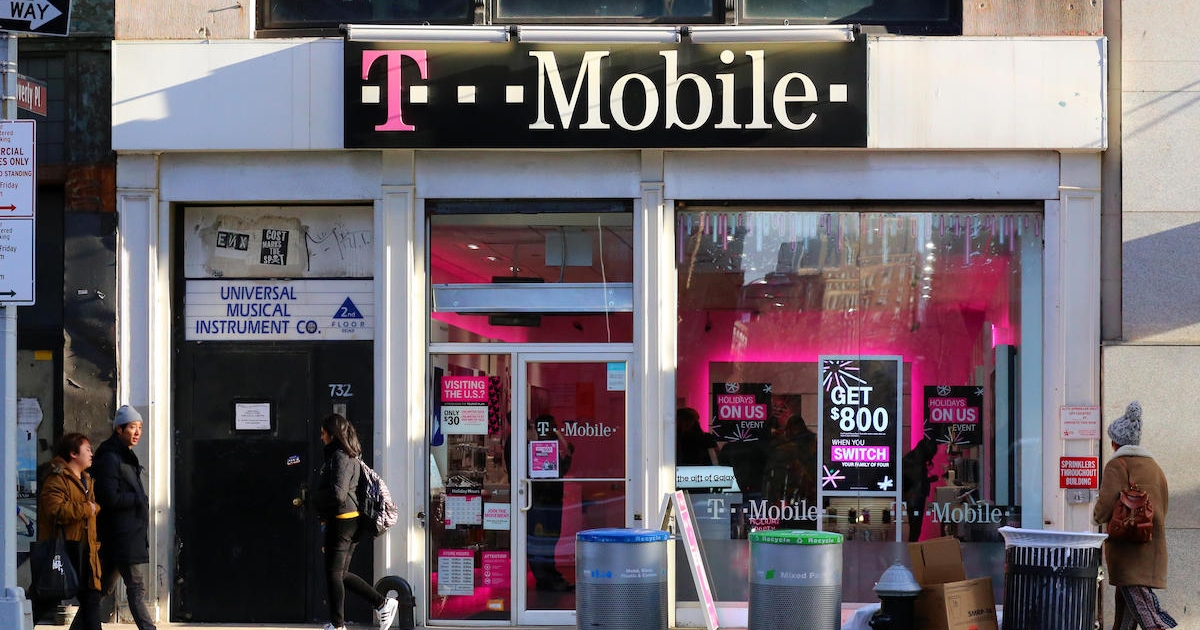T-Mobile is facing new allegations of failing to safeguard sensitive consumer data after a lawsuit was filed on Friday, claiming that an employee at one of its retail stores stole nude images from a customer’s phone. The customer had brought her old device in for trade-in.
This incident echoes at least eight other similar cases against T-Mobile, according to court documents and media reports. The lawsuit highlights increasing scrutiny from lawmakers on wireless companies and tech giants to enhance customer data protection.
The lawsuit, filed in a Washington state court, accuses T-Mobile of inadequate training for its retail employees and of “turning a blind eye” to instances where employees misuse their access to steal customer data while ostensibly assisting with repairs and data transfers.
“For nearly a decade, T-Mobile customers across the U.S. have reported, as evidenced by news reports and lawsuits, cases where retail store employees have stolen intimate videos, explicit photos, and bank account information,” the suit alleges.
“Despite this, T-Mobile has not implemented effective security measures to protect consumers’ data and privacy during routine transactions at their stores.”
In response, a T-Mobile spokesperson said: “This incident involved an employee from a third-party authorized retailer, who has since been terminated.
While we cannot discuss the specifics of this ongoing case, we want to emphasize that we take customer protection very seriously. We have policies and procedures designed to protect customer information and expect them to be adhered to.”
The complaint, which refers to the victim as “Jane Doe,” states that she visited a T-Mobile store at the Columbia Center Mall, located about 200 miles southeast of Seattle, last October to upgrade her iPhone XS Max to an iPhone 14 Pro Max. She gave her old phone to an employee for data transfer.

According to the lawsuit, while the employee had possession of the phone, he discovered nude images and a video of the victim on her XS Max and sent them to himself via Snapchat.
Jane Doe only discovered the images had been sent to an unknown Snapchat account after checking her account later that evening, a trace that led police back to the T-Mobile employee.
“Distressed and worried, Jane returned to the T-Mobile store with her mother to speak with the store manager,” the lawsuit details. “During this time, the unauthorized person continued to access her social media accounts on the XS Max.”
Initially, store staff denied any trade-ins that day, but with assistance from mall security and local police, Jane’s old phone was eventually located in the back room.
“The T-Mobile manager, rather than addressing the sexual privacy crime, told Jane that if she wanted her old device returned, she would have to pay the discounted trade-in value,” the lawsuit states. “Jane’s mother ultimately paid the amount on Jane’s behalf.”
The employee was subsequently charged with first-degree computer trespass, a felony, and disclosing intimate images, a crime in most states. He pleaded guilty last month, according to the lawsuit.
The lawsuit was filed by Carrie Goldberg and Laura Hecht-Felella of the New York-based C.A. Goldberg firm, and Emma Aubrey from the Washington-based Redmond Law Firm.
Goldberg, who often litigates against tech companies for consumer protection failures, described the case as a “classic example of a massive company” treating customer harm as an acceptable business risk.
“T-Mobile has long been aware that its negligent hiring practices and lack of consumer safety policies would lead to some customers being sexually exploited,” Goldberg told.
“T-Mobile offers significant incentives to encourage customers to upgrade their devices and trade in their old ones.
However, the harsh reality is that T-Mobile is aware that employees sometimes steal customers’ most intimate images and videos from these devices,” Goldberg continued. “This case demonstrates that no one should feel their privacy is secure at T-Mobile.”







Leave a Reply